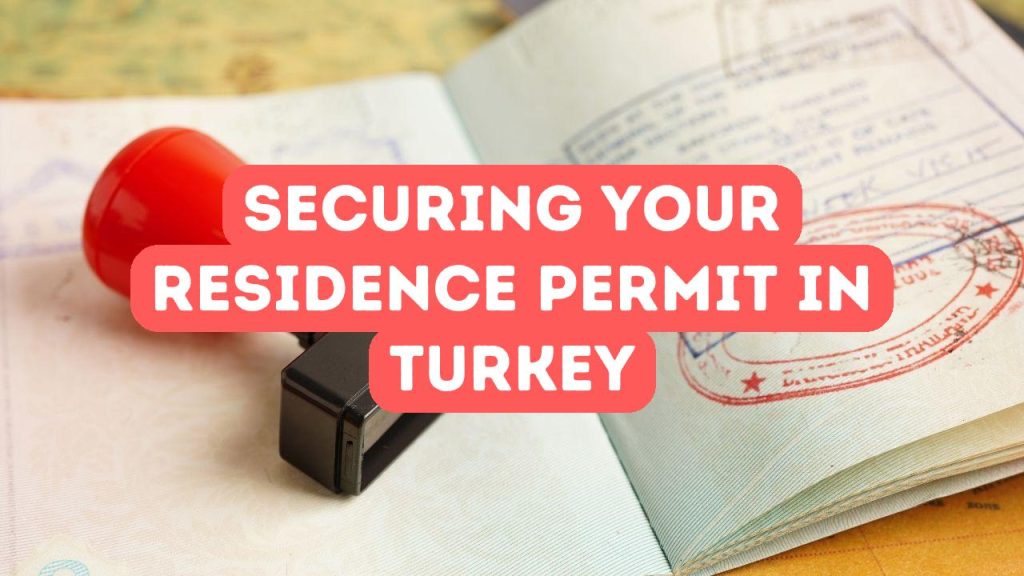Understanding Turkish Immigration Law
Understanding Turkish immigration law is the cornerstone of a successful transition to residency in the country. Prospective residents must navigate a complex legal framework, which includes various types of visas and permits each tailored to different circumstances such as tourism, education, work, or family reunification. Complications often arise from not only the application process but also from the ever-evolving nature of these laws as Turkey adapitates its policies to match socio-economic conditions. Hence, it is imperative for applicants to continuously update their knowledge of the current requirements and seek expert advice when necessary. An intimate comprehension of these legalities will significantly mitigate the risk of inadvertent non-compliance, which could lead to delays, penalties, or even deportation.
For individuals exploring the possibility of residency, understanding the distinction between short-term stay visas and long-term residency permits is vital. Visas usually allow for temporary visits ranging from tourism to short business trips, with a typical maximum duration of 90 days within a 180-day period. In contrast, residency permits are designed for those who intend to stay longer and can be granted for varied lengths of time depending on the purpose, such as study, work, or family ties. It’s essential to apply for a residency permit before the expiration of your visa to avoid any legal pitfalls. Additionally, the transition from a visa to a residency permit often necessitates a separate set of documents and adherence to specific procedures, underscoring the importance of meticulous preparation and timely action to ensure a seamless legalization of your stay in Turkey.
Further to understanding visa and residency permit distinctions, potential residents must familiarize themselves with the rights and obligations associated with various permit types. For example, residency on the basis of real estate purchase does not automatically confer the right to work, which requires a distinct permit. It is equally important to maintain awareness of stay limitations, as exceeding the allowed duration can result in fines or a ban on future entry into Turkey. Navigating these legal nuances demands vigilance in tracking expiration dates and restrictions, and staying informed about legislative changes through official resources or legal counsel. Ultimately, mastering the intricacies of Turkish immigration law is not only about gaining legal entry but also about ensuring your ongoing legal status and the freedom to enjoy your new life in Turkey without unexpected complications.
Exploring Long-Term Stay Options in Turkey
For individuals aspiring to secure a long-term foothold in Turkey, exploring residency options is paramount. The process begins with obtaining either a short-term or long-term residence permit, with the latter often being the aim for those who wish to settle indefinitely. Long-term residency requires a deeper commitment, both from a legal and a practical standpoint. To be eligible, one must have lived in Turkey for a minimum of eight uninterrupted years under a legal residence permit. This period, however, does not include time spent on a student visa, which doesn’t count towards eligibility for the long-term status. In addition to the duration of stay, applicants must also provide evidence of financial self-sufficiency, no criminal record, and valid health insurance. It’s crucial to present a well-documented application to navigate through the stringent scrutiny applied by Turkish immigration authorities, setting a solid foundation for a successful residency endeavor.
Even after satisfying the eight-year requirement, long-term residency is not assured. Applicants must showcase their integration into Turkish society, which includes a basic command of the Turkish language, as stipulated by the Directorate General of Migration Management. Cultural adaptation and evidence of continuous economic activity or a stable income are additional factors weighed during the evaluation process. For entrepreneurs and investors, Turkey offers a distinct path through the establishment of a business or investment in local enterprises, which can potentially lead to an expedited residency permit. It is imperative for prospective residents to stay abreast of evolving immigration laws, including bilateral agreements that might affect their status, to ensure continuity of their residency rights and avoid the ramifications of overstaying, such as fines, deportation, or re-entry bans.
For those weighing the benefits of a more permanent presence in Turkey, citizenship may be an attractive alternative to a residency permit. The Turkish government facilitates a route to citizenship for individuals who make significant economic contributions, such as property investment exceeding a government-specified threshold or a quantifiable investment in Turkish businesses that create jobs. This offers a dual advantage – not only does it serve as a potential fast-track to citizenship, but it also helps foster local economic growth. The benefits of Turkish citizenship are manifold, including the right to vote, access to healthcare and education services on the same basis as Turkish nationals, and the absence of any requirement to renounce one’s original nationality, given that Turkey acknowledges dual citizenship. Ultimately, by considering paths to citizenship, individuals can assess long-term stay options beyond conventional residency while contributing positively to the Turkish economy and reaping the rewards of full integration into Turkish society.
Strategies for Successful Residency Application
Embarking on a successful residency application in Turkey begins with a comprehensive understanding of the different types of permits available and their specific requirements. Prospective residents must thoughtfully consider whether they are seeking short-term stays through tourist residencies, long-term settlement via family or student visas, or aiming for the flexibility of a renewable short-term residence permit. Integral to this process is preparing a meticulously compiled dossier of documents—including proof of financial stability, health insurance that meets Turkish standards, and a clean criminal record. Additionally, it’s worth noting that purchasing property in Turkey can sometimes facilitate the residency process, allowing for a smoother application. Applicants should be mindful to adhere to the latest regulations set forth by the Directorate General of Migration Management to avoid any inadvertent non-compliance that could jeopardize their chances of approval.
After acquainting oneself with the various residency options and gathering the necessary paperwork, the next strategy involves navigating the intricacies of the application process itself. A common stumbling block is the online system, which can be dense and occasionally non-intuitive. To counter this, applicants are well-advised to utilize professional legal services or engage with expatriate communities for insights and advice. Timeframes for processing can fluctuate significantly, so it is prudent to apply well in advance and practice patience. If pursuing the route of property purchase, engaging a reputable real estate lawyer is paramount to ensure all related residency criteria are met. Crucially, all communication with Turkish authorities should be transparent and factual; misrepresentations or errors in the application can result in delays or denials, adding further complications to what is already a detailed and sensitive process.
In the final lap of securing Turkish residency, applicants should be prepared for post-application procedures such as in-person interviews and biometric data collection. It is crucial to maintain vigilance over the status of your application and respond promptly to any requests from immigration officials. Periods of allowed stay before the issuance of a residency permit or during its renewal are tightly regulated; hence, it is essential to plan for potential wait times to avoid overstaying and facing related penalties. A successful applicant will not only abide by the statutory timelines but also actively integrate into Turkish society, which includes learning the language and cultural norms. As one’s status transitions from visitor to resident, keeping abreast of changes in immigration law and stay requirements is a continuous commitment that facilitates an enduring and legally sound residency in Turkey.






